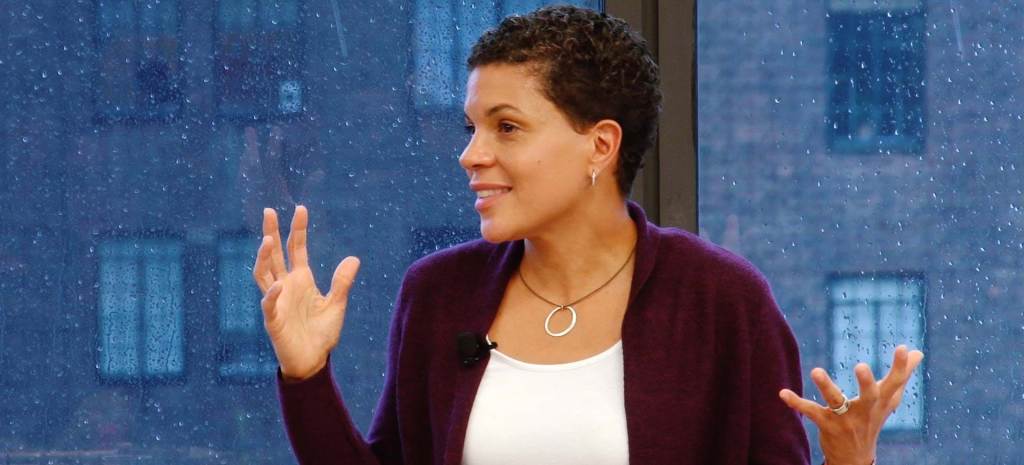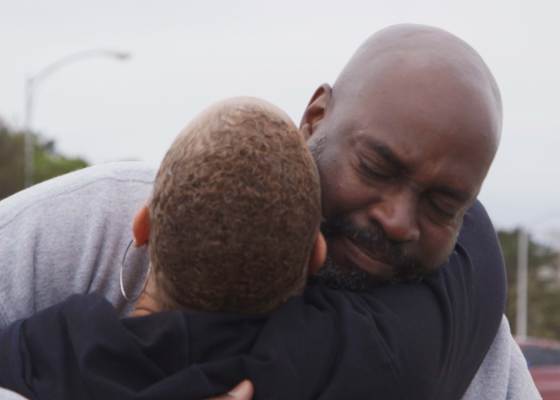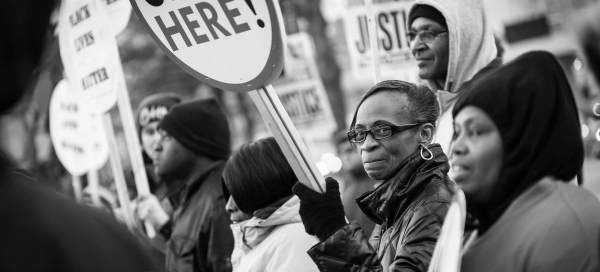 Ford Foundation
Ford FoundationMichelle Alexander—activist, author of the New York Times bestseller The New Jim Crow, and Ford Foundation senior fellow—spoke to staff about the state of racial justice in America. Here are some highlights from her candid and very timely talk.
Ferguson was a critical turning point. But to carry the movement forward, we need to do more.
Following the death of Michael Brown, Alexander credited activists in Ferguson, MO for driving today’s intense debate about race in America—a conversation, she said, no one really wanted to have. So now, how do we sustain and expand on that conversation, and define racial justice goals that are truly transformational? To push the movement forward, Alexander said, we need to go beyond civil disobedience. The movement needs to be strategic in creating the kind of “public crises” that force widespread debate—and deliberate in making demands that can shift public opinion and create culture change.
Accessibility Statement
- All videos produced by the Ford Foundation since 2020 include captions and downloadable transcripts. For videos where visuals require additional understanding, we offer audio-described versions.
- We are continuing to make videos produced prior to 2020 accessible.
- Videos from third-party sources (those not produced by the Ford Foundation) may not have captions, accessible transcripts, or audio descriptions.
- To improve accessibility beyond our site, we’ve created a free video accessibility WordPress plug-in.
Police body cameras are not a solution.
One response to the deaths of Michael Brown, Eric Garner, and Freddie Gray has been a call for police officers to wear body cameras that capture their actions and hold them accountable. To Alexander, the call for body cameras is a sign that we haven’t thought carefully enough about a broader goal. And she pointed out that body camera technology could easily be used to further other agendas—for example, to monitor poor communities and communities of color. “Those cameras on the police won’t be filming the police,” she said. “They’ll be filming everyone who comes into contact with the police.”
Accessibility Statement
- All videos produced by the Ford Foundation since 2020 include captions and downloadable transcripts. For videos where visuals require additional understanding, we offer audio-described versions.
- We are continuing to make videos produced prior to 2020 accessible.
- Videos from third-party sources (those not produced by the Ford Foundation) may not have captions, accessible transcripts, or audio descriptions.
- To improve accessibility beyond our site, we’ve created a free video accessibility WordPress plug-in.
The problem isn’t mass incarceration, but mass criminalization.
When we think about how to address the problem of mass incarceration, the obvious solution is to let people out of prison. But that doesn’t begin to address the root causes and racial injustices that have fueled the problem. By shifting our understanding to the broader reality of mass criminalization—which takes into account a whole range of interconnected issues, including the economic and educational conditions that steer people toward the criminal justice system to begin with—we start to see different approaches and solutions: like investing in employment and education for the communities that have been hardest hit by the war on drugs.
Black lives matter. And we have to recognize the dignity and humanity of all people.
Alexander talked about the conflict between the ideas of “Black Lives Matter” and “All Lives Matter.” It’s critical to acknowledge the specificity of America’s racial history and its contribution to the suffering of black people today, she said. And at the same time, we need to build bridges between communities, and recognize how their issues and problems intersect.


